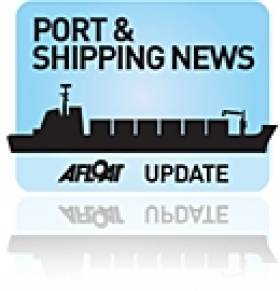Displaying items by tag: Short Sea Shipping
#ESPOplea- The European Sea Ports Organisation (ESPO) is joining a group of transport stakeholder associations in a plea to further exploit the full potential of the short-sea shipping sector.
The group of stakeholders include European association for forwarding, transport, logistics and customs services (CLECAT), The European Community Association of Ship Brokers and Agents (ECASBA), The European Community Shipowners' Associations (ECSA), ECS, European Shortsea Network (ESN), the European Sea Ports Association (ESPO), the Federation of European Private Port Operators (FEPORT), Interferry and World Shipping Council, in addressing an open letter to European policymakers.
By this letter, and through their individual contributions to the Mid Term Review, the associations listed above are calling on the European Commission and Member States to work together to put in place practical, meaningful and effective solutions for the issues currently facing the maritime sector. The plea is so that it can achieve the outcomes envisaged in the Athens Declaration and contribute fully to the economic and social development of the European Union.
The full text of the open letter can be found here.
IEA Export Industry Awards to Shipping
In the category of Short Sea Shipping Company of the Year, sponsored by the Irish Maritime Development Office, which recognises the strategically important role of short sea shipping to our economy, the winner of the award was CLDN Colbefret Group.
The Belgium operator opened two new routes from Dublin to Rotterdam and Zeebrugge in November last year, providing a range of transport options to Irish exporters selling to Europe. Since then Cobelfret have gradually introduced new Con-Ro (Containers and Roll-On/Roll-Off) vessels onto the continental routes. The six 25,000 gross tonnes newbuilds were built by FGS Flensburg, Germany and the latest unit Opaline, is due to make a Dublin debut tomorrow.
Cobelfret's operations in Dublin are based in Alexandra Basin East using the ports No. 2 ro-ro linkspan berth. A previous linkspan built in the 1950's was demolished last summer to develop a larger linkspan, to cater for larger tonnage like the Opaline. The new vessel has 2,907 lane metres for freight vehicles spread over three decks and a container capacity for 854 TEU mafi-trailers.
Donegal based Marine Harvest won the Seafood Export Award, sponsored by Bord Biá. The company is an indigenous fully-integrated salmon breeding, farming and processing operation, exporting premium products to Europe and North America.
The overall winner of the IEA's Export Industry Award for 2010 was the Irish Dairy Board.























